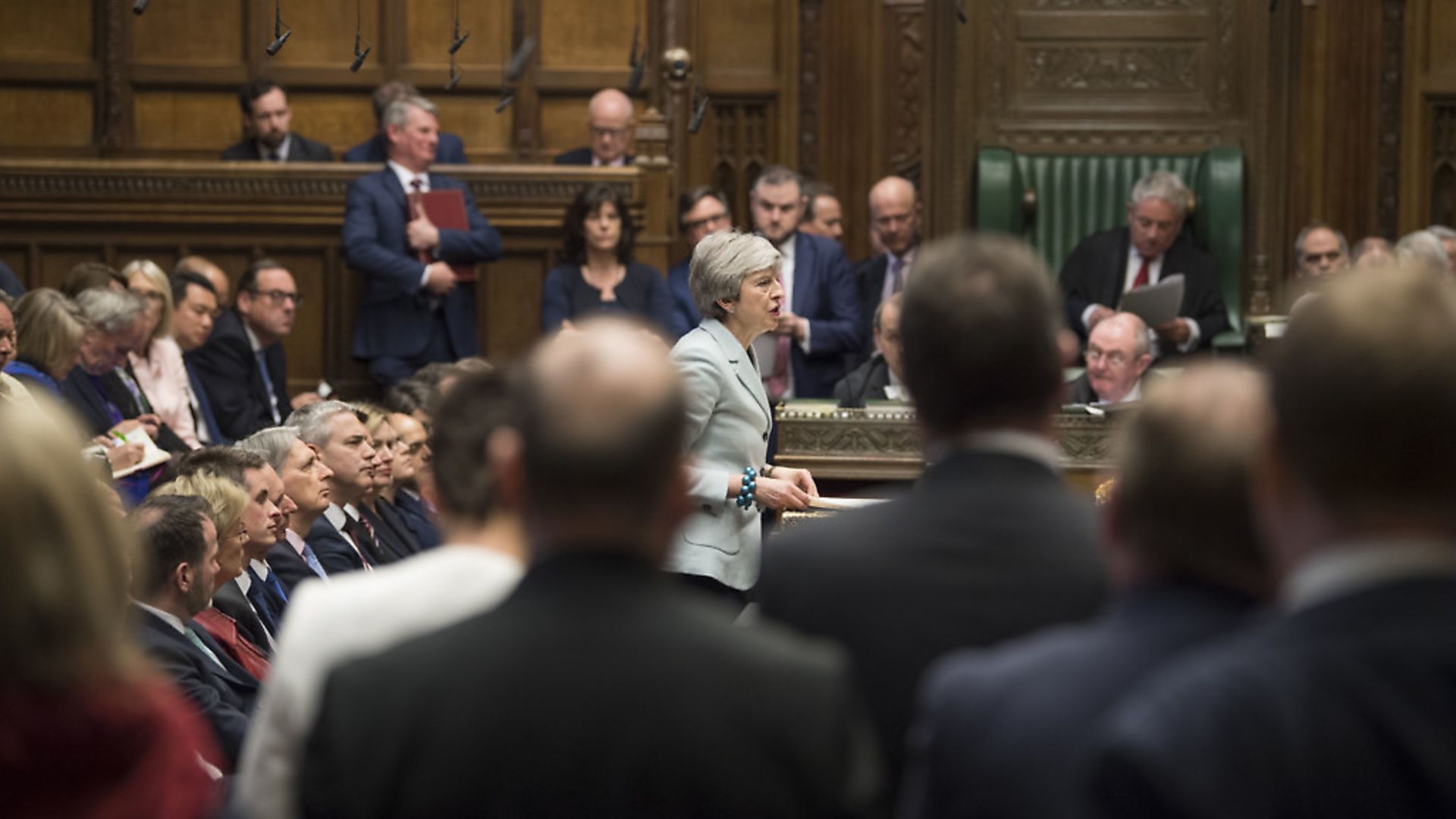
Theresa May’s Brexit strategy is in disarray after MPs voted to take back control from the hands of ministers.
Three pro-EU ministers quit the government to back a Commons amendment enabling MPs to take control of Commons business to stage a series of ‘indicative votes’ on alternatives to the prime minister’s deal.
They were among 30 Conservative MPs to defy the whips and support the cross-party amendment which was passed by 329 to 302 – a majority of 27 – in another humiliating reverse for May.
Business minister Richard Harrington, who resigned along with Middle East minister Alistair Burt and health minister Steve Brine, said the Government was ‘playing roulette’ with peoples’ lives and livelihoods in its handling of Brexit.
The result means MPs can potentially dictate business of the Commons – normally controlled by the government – for days to come, potentially paving the way for a ‘softer’ deal that keeps Britain closer to the EU.
Ministers will consider their response at the weekly meeting of the cabinet in Downing Street later.
MORE: How did your MP vote on the Brexit amendments?
MORE: Anna Soubry says she’ll fight to stop Brexit at ‘whatever cost’
The government warned the vote had set a ‘dangerous, unpredictable precedent’ and said it was essential that any options put forward by MPs were actually ‘deliverable’.
‘This amendment instead upends the balance between our democratic institutions and sets a dangerous, unpredictable precedent for the future, a spokesman for the Department for Exiting the EU said.
‘While it is now up to parliament to set out next steps in respect of this amendment, the Government will continue to call for realism – any options considered must be deliverable in negotiations with the EU.’
Earlier in a statement to MPs, the prime minister warned she would not feel bound by the results of any indicative votes – which could include a softer, Norway-style deal, a second referendum or revoking the Article 50 withdrawal process altogether.
‘No government could give a blank cheque to commit to an outcome without knowing what it is,’ she said.
‘So I cannot commit the Government to delivering the outcome of any votes held by this House. But I do commit to engaging constructively with this process.’
However one of the leading Tory rebels, former minister Nick Boles, warned that MPs could take pass legislation forcing the government to act if she tired to ignore their wishes.
‘We will be relying on the government to reflect parliament’s wishes,’ he told the BBC.
‘If, ultimately, the government refuses to listen to what Parliament has voted for then we will look to bring forward a Bill, pass an Act of Parliament that will require the Government to reflect Parliament’s wishes in its new negotiating mandate.’
The successful amendment was tabled by Tory former minister Sir Oliver Letwin with cross-party backing, including from ex-attorney general Dominic Grieve and Labour’s Hilary Benn.
It means MPs will take control of the Commons order paper from 2pm on Wednesday, with Sir Oliver suggesting voting could carry on over several days to establish if there was a proposal the House could coalesce around.
He said the amendment provided for the Commons ‘to begin the process of working its way towards identifying a a way forward that can command a majority in this House’.
He said he believed the first vote should enable MPs to disclose ‘where the votes lie’ on a ‘plain vanilla basis’ – with all votes cast on a paper slip at the end of the debate.
The House, he said, should then seek to establish a method of voting that would enable it to ‘zero in’ on compromise which could command a majority over the course of the coming days.
The vote came after the prime minister acknowledged that she still did not have sufficient support to bring back her deal to the Commons for a third ‘meaningful vote’.









